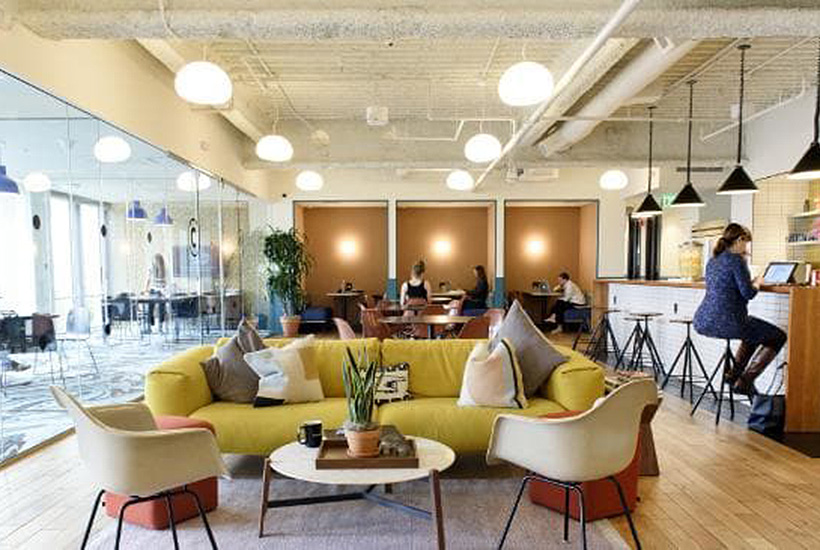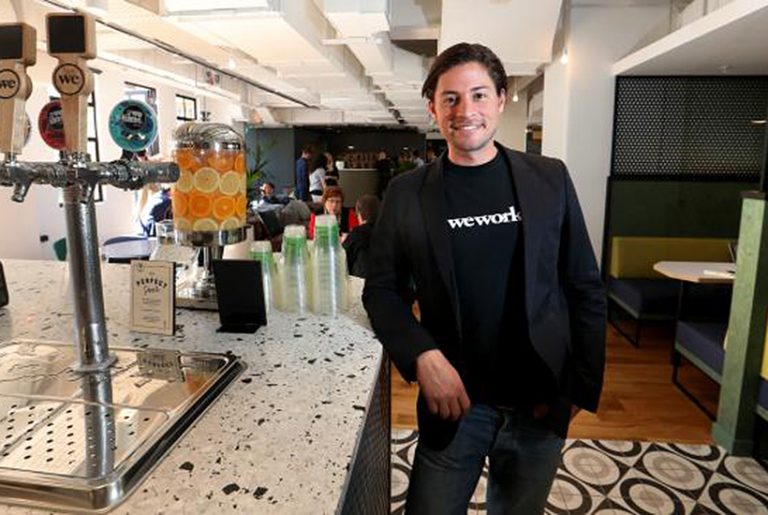WeWork now Manhattan’s biggest office renter

WeWork now occupies more Manhattan office space than any other company, a milestone that reflects booming demand for flexible workspace among legions of small and midsize firms — and, increasingly, larger companies, too.
The co-working company rents 5.3 million square feet (nearly 500,00sqm) in Manhattan. WeWork calculated that a lease it recently signed for 258,344sq ft at Penn Plaza pushed its total past the 5.2 million square feet of space rented or owned by JPMorgan Chase , according to real estate services firm Cushman & Wakefield.
WeWork is one of the biggest and fastest-growing of the “flex space” office providers, a group that also includes Knotel, Industrious Office and IWG.
Commercial Insights: Subscribe to receive the latest news and updates
The New York-based company and similar flex-space operators have made big strides in New York City this year. They accounted for 9.7% of Manhattan’s new leases signed in the first eight months of 2018, compared with only 3.3% in all of 2017, according to real estate services firm CBRE.
Co-working companies initially filled their offices primarily with start-ups that were eager to work alongside other young firms. Tenants welcomed WeWork amenities like comfortable lounges and beer on tap.
More recently, co-working companies have fuelled their growth by attracting bigger firms that once expressed little interest in flexible office space. Divisions of Amazon, Verizon and Liberty Mutual Insurance are now taking space through WeWork and its peers.

A WeWork office space in New York City.
These companies typically welcome the greater flexibility of shorter leases, and in some cases exposure to entrepreneurs and start-ups leasing in the same building.
“The ability to act quickly and get into a market and capture the talent you want to get is much more critical than before,” said John Vazquez, a Verizon senior vice president.
Verizon has more than 6000 employees in 54 flex-space locations across the US.
Overall, co-working and other flex-space companies control 59 million square feet of US office space, up from 12 million in 2010, real estate services firm JLL says.
Consulting firm McKinsey has taken space with Industrious Office, IBM leases a WeWork building and Omnicom is using Knotel. Other big corporations are testing the waters, according to Amol Sarva, Knotel’s chief executive. “The stage we’re in now is mass piloting,” he says.
Sceptics say co-working’s rapid growth is largely a function of the long economic expansion. They suggest the business model could face new challenges when the economy slows.
WeWork and its peers are typically on the hook for fixed rents of 10 to 15 years, but their subtenants can bolt after only a fraction of that time, potentially leaving co-working companies stuck with empty space for long stretches. That’s what happened in 2001 to Regus, a Europe-based flex-space company now known as IWG, which grew rapidly during the dotcom boom before its rents and occupancy levels plummeted during the bust. Its US arm ended up filing for bankruptcy protection in 2003.
WeWork, like other co-working companies, is attracting large firms looking to set up satellite offices.
SoftBank Group has made a big bet on co-working. The Japanese tech investor and other backers have poured more than $US5 billion ($6.8 billion) into WeWork, which was valued in 2017 at $US20 billion. The eight-year old company is in the process of raising money at a roughly $US40 billion valuation.
WeWork chief development officer Granit Gjonbalaj says the company is positioned to accommodate large businesses shrinking their offices during a downturn.
Some analysts expect flexible space could make up as much as 15% of the real estate portfolios of large companies in the next three to five years.
This article originally appeared on www.theaustralian.com.au/property.







